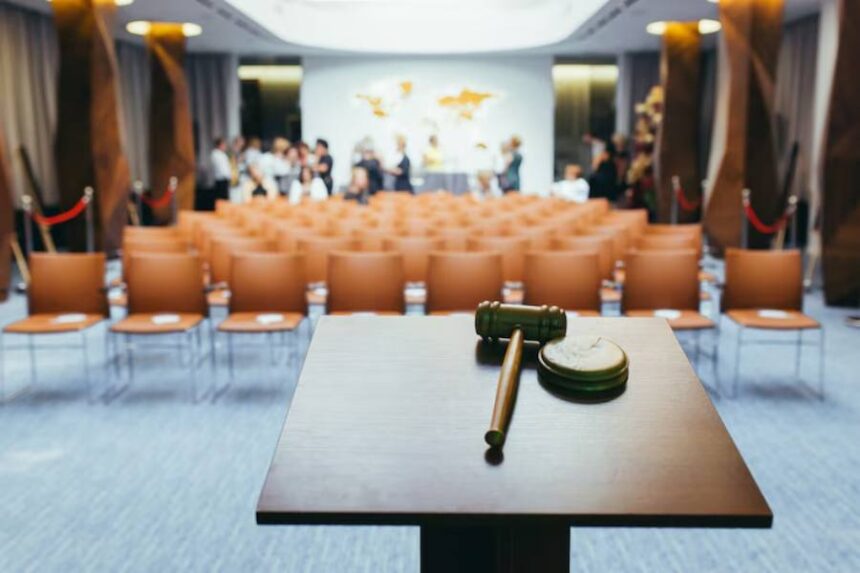Grand juries play an important role in the criminal justice system. Their job is to look at the evidence and decide if someone should be officially charged with a crime. While this process is meant to protect people from unfair charges, it has also raised some serious concerns over the years.
Some people think the system is too secretive and gives too much power to prosecutors. Others believe it helps keep things fair and organized. In this article, we’ll break down how grand juries work in Texas, why some people are calling for change, and what’s being done to improve the system.
What is a Grand Jury and How Does It Work in Texas?
A grand jury is a group of regular people from the community who look at evidence in a criminal case. Their job is to decide if there’s enough reason to charge someone with a crime. They don’t decide if the person is guilty or innocent–that happens later at trial. Instead, they just decide if the case should move forward.
In Texas, a grand jury has 12 members who are chosen to serve for a certain time. The process is pretty private. The person being accused doesn’t get to be there, nor does their lawyer. Only the prosecutor gets to show the evidence, and then the grand jury talks it over in private. If they think there’s enough evidence, they issue an indictment, which means the case can go to trial. If they don’t, the case usually ends there.
Key Points of Controversy
Even though grand juries are meant to protect people from being charged unfairly, the way the system works in Texas has raised a lot of questions and concerns.
Lack of Transparency
The public doesn’t get to know what goes on during grand jury meetings, and even the person being accused isn’t allowed to be there or see what’s being said. This lack of openness can make people lose trust in the system, especially when decisions don’t make sense or seem unfair.
Prosecutorial Dominance
Prosecutors decide what evidence the jury sees and what the jury hears. Some people worry this gives the prosecutors too much power and can lead to unfair outcomes, especially if the evidence isn’t very strong, but they still push for charges.
No Judge Present
Unlike a regular trial, there’s no judge around during grand jury meetings. That means no one is there to make sure everything is fair or done the right way. This can be a big deal since grand juries are making decisions that can seriously affect someone’s life.
Overuse or Misuse
Some people believe grand juries are sometimes used to protect police officers from being charged, especially in cases involving police shootings or misconduct. In many high-profile cases, grand juries have decided not to charge officers, which has led to criticism that the system goes easy on people in positions of power. This issue is often connected to key police brutality statistics, which show that cases of police using too much force happen often, but it’s rare for those officers to face serious consequences.
Arguments in Defense of the Current System
Even though the grand jury system in Texas gets a lot of criticism, some people believe it still serves an important purpose and shouldn’t be changed too much.
Protecting People from Unfair Harm
One reason grand jury proceedings are kept secret is to protect people who end up not being charged. If everything were made public, someone’s reputation could be damaged, even if they’re innocent and never go to trial. The secrecy is meant to give prosecutors a chance to look at the evidence without putting someone’s name out there unless it’s necessary.
Letting Prosecutors Do Their Job
Supporters of the system say it makes sense that the prosecutor controls what evidence is shown. It helps keep the process focused and avoids wasting time and money on cases that don’t have enough support. If every case had to go to trial, even the weak ones, the courts would be overloaded.
Saving Time and Resources
Grand juries also help speed things up. If there isn’t enough evidence, the case doesn’t move forward, which means people don’t have to go through long and expensive court processes for no good reason. It helps keep the system running more smoothly for everyone involved.
Reform Proposals and Efforts
The system is supposed to protect people’s rights and make sure cases are handled fairly, but many believe it could be more balanced and open. Here are some of the ideas that have been suggested:
- Open up grand jury records: Some people think the public should be allowed to see parts of what happens during grand jury proceedings, especially in major or controversial cases.
- Let defense lawyers take part: There’s a push to let defense lawyers be involved in some way, like sharing evidence or giving a statement, so the grand jury doesn’t only hear one side.
- Create citizen review boards: In some areas, communities have started using local review boards made up of regular people to look over grand jury decisions and help make sure things are fair.
- Give prosecutors less control: Some reformers want to limit how much power the prosecutor has over what the grand jury sees and hears.
Final thoughts
The grand jury system in Texas isn’t perfect, but it’s an important part of how the justice system works. Like many parts of the legal process, it’s complex and not always easy to understand or trust, especially when decisions feel unfair or one-sided.
Whether or not big changes happen soon, it’s clear that more people are paying attention and asking questions. If you ever find yourself facing a case or trial, a criminal lawyer in Irving can help guide you through the process and ensure your rights are protected. At the end of the day, fair justice should be something everyone can count on.




